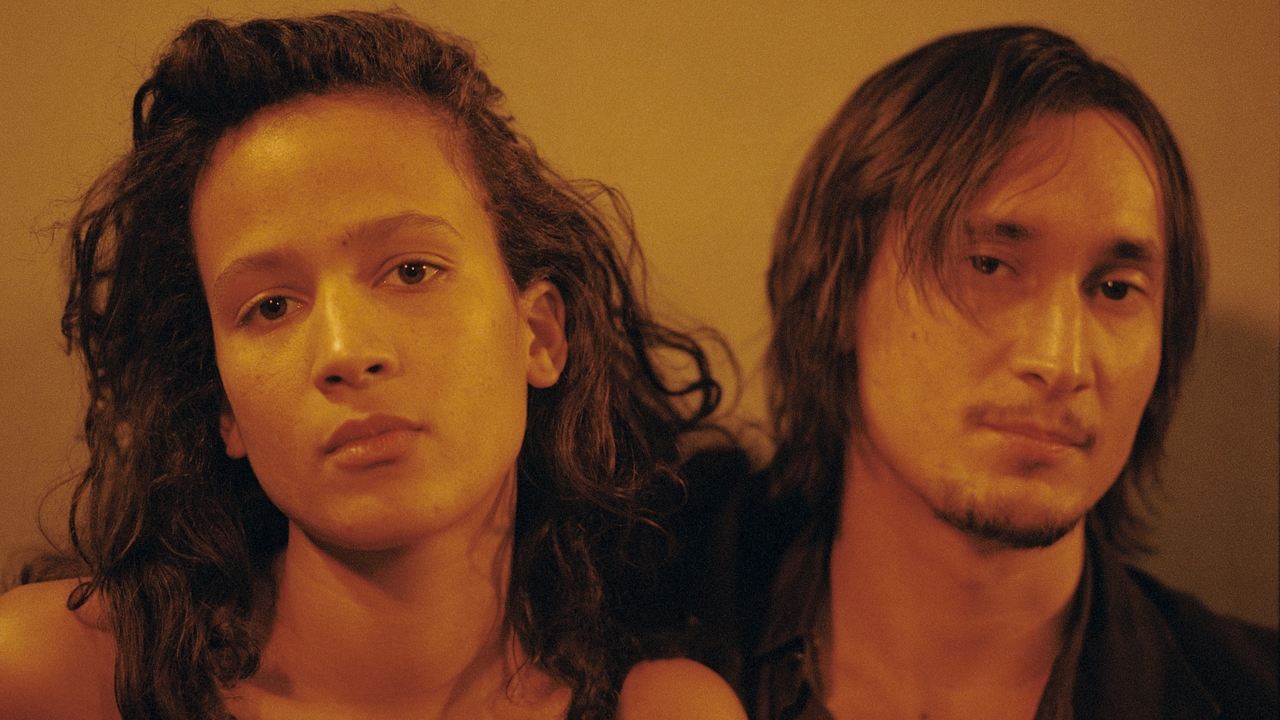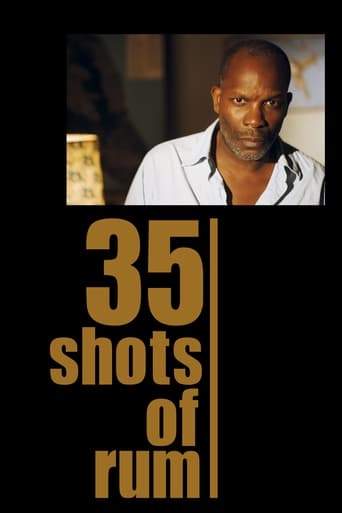

This movie is the proof that the world is becoming a sick and dumb place
... View MoreSERIOUSLY. This is what the crap Hollywood still puts out?
... View MoreA Disappointing Continuation
... View Morewhat a terribly boring film. I'm sorry but this is absolutely not deserving of best picture and will be forgotten quickly. Entertaining and engaging cinema? No. Nothing performances with flat faces and mistaking silence for subtlety.
... View MoreLoneliness is a strange feeling as one can be lonely even while being surrounded by huge armies of people. 35 shots of Rum appears to celebrate loneliness as it allows its protagonists to explore their inner world where loneliness is an expression of their choice which they use in order to reveal their strengths and weaknesses. This film is a sensible study which highlights the strengths and weaknesses of human character. This study is carried out through the depiction of human life's most ordinary moments namely a woman buying a rice cooker, a car getting stuck during a rainy season etc. 35 shots of rum is balanced in his approach as loneliness has also been depicted as a life threatening sentiment which claims numerous victims. One such victim dies after having been viciously attacked by fate. French director Claire Denis chose to depict a quiet yet fragile daughter/father relationship which is not able to stand the test of time. This is shown in the form of cracks which begin to slowly destroy an innocent daughter/father relationship when both of them choose to part in order to be with their loved ones.
... View MoreI liked everything about this movie. I liked spending time with these characters, and the performances were spot on. I liked the moody aesthetic of the film, the music (I haven't heard "Nightshift" in YEARS!) and the cinematography fit beautifully. I liked how the relationships between the personalities gradually unfolded and revealed themselves. But the operative word here is "like." Although I can't find anything to criticize, I can't find anything that deserves exceptional praise either. It's a thoughtful movie, it's a nice movie... it's a good, solid understated drama. It just wasn't anything more than that. I often wondered if there was some subtext I wasn't picking up on, which is highly possible. For whatever reason, although I enjoyed it, it didn't leave much of an impression.
... View MoreA long, pretentious and boring mess, ending in a mushy inexplicable scene set up only to get the title worked into the film. It goes nowhere... mostly because it hardly has a plot, it is just enigmatic observations.Denis's strives for realism and humanism; but the only rare viewer can possibly identify with the film due to its purposely vague non-plot. Or to its characters who are just living their mundane lives. This film uses a manipulative narrative structure and its characters are mostly connected by lifeless staring or slight movements. The character development is nothing more than an hour and a half of watching them perform the most trivial and mundane of tasks. Nothing much happens. And the scenes in which nothing much happens drag on endlessly. This slice of life film was far less enjoyable than a slice of soggy pizza.
... View MoreIn French director Claire Denis' 35 Shots of Rum, the world becomes, in author Sharon Salzberg's phrase, "transparent and illuminated, as though lit from within". It is a film of infinite tenderness in which the characters lives are delicately interwoven to build a tapestry of interconnectedness that signals life's inevitable passages. Reminiscent of Hou Hsiao-hsien's Café Lumiére with its intimate depiction of city life and the coming and going of trains, 35 Shots of Rum pays homage to Yasujiro Ozu in its story of the relationship between Lionel (Alex Descas), a train conductor of African descent whose striking features convey a sense of stoic dignity and his student daughter Josephine (Mati Diop) who is eager to assert her independence.Like the relationship of Chishu Ryu and Setsuko Hara in Ozu's films, the focus is on the mundane occurrences of everyday life, the quiet intimacies in which meaning is revealed only by implication. While the characters are black, their lives are comfortably middle class and the only suggestion of racial issues is a classroom scene where Jo talks about how "the global South" is indebted to the industrial north. Set to a lovely score by the British band "Tindersticks" and gloriously choreographed by cinematographer Agnes Godard, the film opens with a ten minute montage of the crisscrossing of trains of the RER, the system that connects Paris to its suburbs.Interspersed are close-up shots of Josephine, Lionel, and his co-worker René (Julieth Mars Toussaint) whose immanent retirement signals a depressing change in his life. As the scene shifts to a small Paris apartment, like a married couple, Lionel and Josephine settle into a domestic routine of cooking, cleaning, and showering, their relationship of father and daughter not made clear until we see a photograph of a younger Jo and her German mother. This initial opaqueness seems to pervade a film that relies on the viewer to fill in the blanks. It is clear from the outset, however, that Lionel is dependent on his daughter and fears her eventual departure.Although he tells her reassuringly, "Don't feel I need to be looked after Just feel free", he also lets her know her that "We have everything here. Why go looking elsewhere?" His happiness is threatened by upstairs neighbor Noé (Gregoire Colin), a scruffy-looking young man who lives with his cat and does not hide his feelings for Jo even while vowing to move to Gabon for a job. We are also introduced to Gabrielle (Nicole Dogué), a taxi driver who is attached to Lionel and may have been his lover. This unlikely quartet form an extended family and their deep seated feelings for each other are revealed in an illuminating scene in a café after their car breaks down in route to a concert.Lionel's conflicted feelings about his daughter's growing up become apparent when the intimate dance between father and daughter to the song "Night Shift" by the Commodores is interrupted by Noé who cuts in and immediately ups the romantic ante. Lionel's jealousy is also reflected by Gabrielle shortly afterwards as she watches Lionel dancing with the café's attractive hostess. In an unexpected trip to Germany to visit a friend (or sister) of Jo's late mother's, the inner lives of the characters and the bonds that hold them together are further explored, although little happens on the surface.To say that 35 Shots of Rum is a film of mystery belies the fact that it is also quite accessible though in a very rich and subtle way. Its achievement lies in its ability to create memorable characters and fully involve us in their lives without relying on extended conflict, outward displays of emotion, or even a coherent narrative, drawing its power from its creation of magic through silences, glances, and a loving warmth that lingers in the memory. It is one of Denis' best films.
... View More